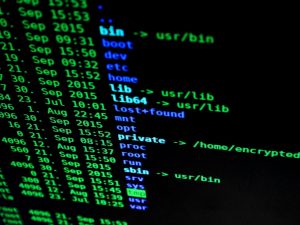Is Microsoft Really Leading Blockchain—Or Just Playing Catch-Up?
Let’s get one thing straight: Microsoft is a beast in AI, cloud computing, and enterprise security.
But blockchain? Not so much.
🚨 Despite the hype, Microsoft is NOT a blockchain leader.
Yes, it has powerful enterprise-grade blockchain integrations. Yes, it has Azure Confidential Ledger, Entra Verified ID, and compliance-ready security solutions. But let’s be real:
📌 Microsoft isn’t innovating blockchain—it’s just making it work for corporations.
💡 So, is this a smart play or a missed opportunity? And should CTOs bet on Microsoft for blockchain?
Let’s break it down.
The Truth: Microsoft Ditched Its Own Blockchain & Pivoted to Enterprise Security
Once upon a time, Microsoft actually tried to lead in blockchain.
🔹 Azure Blockchain Service launched as a managed blockchain-as-a-service (BaaS) platform.
🔹 Enterprises could deploy private blockchains, run smart contracts, and integrate with Ethereum.
🔹 It was supposed to be Microsoft’s answer to the blockchain revolution.
🚨 Then, in 2021, they shut it down.
Why? Because blockchain innovation wasn’t happening inside Microsoft—it was happening everywhere else.
🔹 Ethereum became the standard for smart contracts.
🔹 Hyperledger took over enterprise blockchain adoption.
🔹 Solana, Avalanche, and Polkadot proved faster and cheaper alternatives.
📌 Microsoft didn’t need to build a blockchain—it needed to integrate blockchain into what it already dominates: enterprise security.
So instead of competing with Ethereum or Hyperledger, Microsoft pivoted.
🔥 Now, Microsoft is embedding blockchain into security, compliance, and AI governance—where it actually makes sense for enterprise adoption.

Where Microsoft Excels: Blockchain-Powered Security & Compliance
📌 Microsoft isn’t building blockchains—it’s making them useful for businesses.
🔥 1. Microsoft Entra Verified ID (Decentralized Identity)
🔹 A blockchain-based identity system that eliminates passwords and central ID providers.
🔹 Helps enterprises move toward zero-trust security models.
🔹 Uses blockchain for verifiable credentials and secure access management.
💡 This is a BIG deal. Deepfake fraud, identity theft, and AI-powered phishing attacks are on the rise. Microsoft’s blockchain-based identity solution is the future of authentication.
🔥 2. Azure Confidential Ledger (Tamper-Proof Enterprise Logs)
🔹 A blockchain-powered audit log that prevents data tampering.
🔹 Ensures compliance for financial, healthcare, and AI decision-making records.
🔹 Allows enterprises to store immutable data without relying on a public blockchain.
📌 This is blockchain for the enterprise world—not for crypto bros.
🔥 3. AI Governance with Blockchain
🔹 AI models are getting stolen, manipulated, and reverse-engineered.
🔹 Microsoft is integrating blockchain into AI decision logs to prevent unauthorized model changes.
🔹 This creates an immutable, auditable AI governance framework.
💡 AI security is a massive challenge. Microsoft’s approach to blockchain-backed AI integrity could set a new enterprise standard.
🚀 So while Microsoft isn’t leading blockchain, it’s making sure enterprises can use it where it matters.
Is Microsoft Really Leading Blockchain—Or Just Playing Catch-Up?
Let’s get one thing straight: Microsoft is a beast in AI, cloud computing, and enterprise security.
But blockchain? Not so much.
🚨 Despite the hype, Microsoft is NOT a blockchain leader.
Yes, it has powerful enterprise-grade blockchain integrations. Yes, it has Azure Confidential Ledger, Entra Verified ID, and compliance-ready security solutions. But let’s be real:
📌 Microsoft isn’t innovating blockchain—it’s just making it work for corporations.
💡 So, is this a smart play or a missed opportunity? And should CTOs bet on Microsoft for blockchain?
Let’s break it down.
The Truth: Microsoft Ditched Its Own Blockchain & Pivoted to Enterprise Security
Once upon a time, Microsoft actually tried to lead in blockchain.
🔹 Azure Blockchain Service launched as a managed blockchain-as-a-service (BaaS) platform.
🔹 Enterprises could deploy private blockchains, run smart contracts, and integrate with Ethereum.
🔹 It was supposed to be Microsoft’s answer to the blockchain revolution.
🚨 Then, in 2021, they shut it down.
Why? Because blockchain innovation wasn’t happening inside Microsoft—it was happening everywhere else.
🔹 Ethereum became the standard for smart contracts.
🔹 Hyperledger took over enterprise blockchain adoption.
🔹 Solana, Avalanche, and Polkadot proved faster and cheaper alternatives.
📌 Microsoft didn’t need to build a blockchain—it needed to integrate blockchain into what it already dominates: enterprise security.
So instead of competing with Ethereum or Hyperledger, Microsoft pivoted.
🔥 Now, Microsoft is embedding blockchain into security, compliance, and AI governance—where it actually makes sense for enterprise adoption.
Where Microsoft Excels: Blockchain-Powered Security & Compliance
📌 Microsoft isn’t building blockchains—it’s making them useful for businesses.
🔥 1. Microsoft Entra Verified ID (Decentralized Identity)
🔹 A blockchain-based identity system that eliminates passwords and central ID providers.
🔹 Helps enterprises move toward zero-trust security models.
🔹 Uses blockchain for verifiable credentials and secure access management.
💡 This is a BIG deal. Deepfake fraud, identity theft, and AI-powered phishing attacks are on the rise. Microsoft’s blockchain-based identity solution is the future of authentication.
🔥 2. Azure Confidential Ledger (Tamper-Proof Enterprise Logs)
🔹 A blockchain-powered audit log that prevents data tampering.
🔹 Ensures compliance for financial, healthcare, and AI decision-making records.
🔹 Allows enterprises to store immutable data without relying on a public blockchain.
📌 This is blockchain for the enterprise world—not for crypto bros.
🔥 3. AI Governance with Blockchain
🔹 AI models are getting stolen, manipulated, and reverse-engineered.
🔹 Microsoft is integrating blockchain into AI decision logs to prevent unauthorized model changes.
🔹 This creates an immutable, auditable AI governance framework.
💡 AI security is a massive challenge. Microsoft’s approach to blockchain-backed AI integrity could set a new enterprise standard.
🚀 So while Microsoft isn’t leading blockchain, it’s making sure enterprises can use it where it matters.

